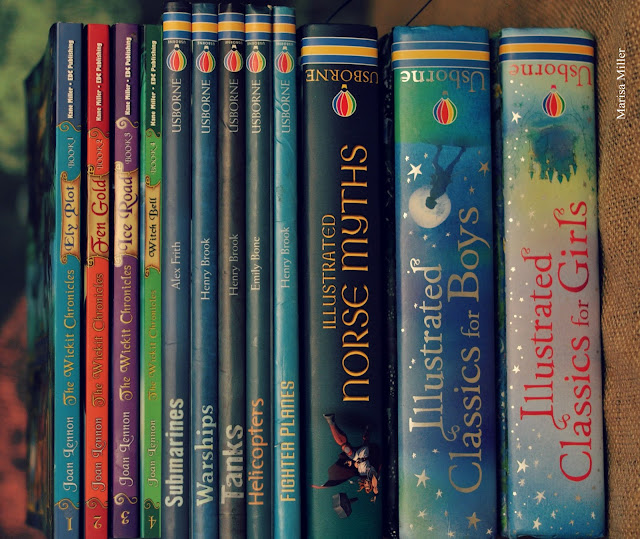Following Their Lead in Reading
According to our parents, my husband and I both started reading when we were four. So naturally, when my firstborn was around that age, I started teaching him phonics. I was really excited for him to discover books. I read to him everyday, trailing my finger along the words. I bought used Abeka phonics cards and we would cuddle on the bed going through them. Over time, I could see that we weren’t making much progress. Our parents wondered if he was ever going to read, and often voiced their concern. Even with the practice, he didn’t start reading kindergarten readers until he was seven.
There are two main schools of thought in homeschooling circles regarding teaching reading: “better late than early” and “better early than late.” Neither option is right or wrong, because it depends on the development of your own children. There is no harm in a child reading at a young age if he is ready for it. And children who learn to read later usually get to grade level proficiency or above very quickly. This is what happened for my oldest who is now 12; he loves reading books and is right on target for his age. Because of that, I decided I wouldn’t actively teach my next son to read until he was older with signs of readiness, but to my surprise, he taught himself when he was 6.
My daughter is nearly 8, and she struggles more than the boys have. The stereotype of girls learning to read earlier has not been true for our family. It’s important to remember these children are uniquely created individuals, and formulas don’t apply to all. I’ve encouraged her to spend more time on Starfall learning the letter sounds, because she has a hard time remembering them from one word to the next. Her confidence grows by recognizing sight words, and I know that it will all be unlocked for her in time.
My youngest son is turning 6 this month, and he is my earliest reader. He has never had a phonics lesson apart from his time playing on Starfall. He helps his sister read the text on the screen when she’s playing Animal Jam.
It’s a relief as a homeschooling mom to know that I have overcome my first big hurdle as their teacher and facilitator. I know what it is like to start out with your first child, when it feels like everyone is second-guessing your choices and waiting for you to fail. Once your children begin to read, it usually takes the pressure off of you. They can now become self-directed learners. What an exciting milestone!
One thing that we’ve found of importance no matter how or when your child learns to read is providing quality literature for them to read. From spelling and grammar to dictation and fluency, quality literature is of utmost importance. We have found that Usborne books really deliver on quality and high quality illustrations. If you haven’t used an Usborne book before, I encourage you to give them a try!
If any of my children were to need further help in any academic skill, whether it be phonics or math, I would certainly offer it. But my goal in delaying formal academics was that by then, they would have already equated reading and learning with pleasure and the enjoyment of following their interests. It has been my experience that if one of my kids is struggling to progress, it usually just means they need some more time to grow and develop.




Comments
Post a Comment